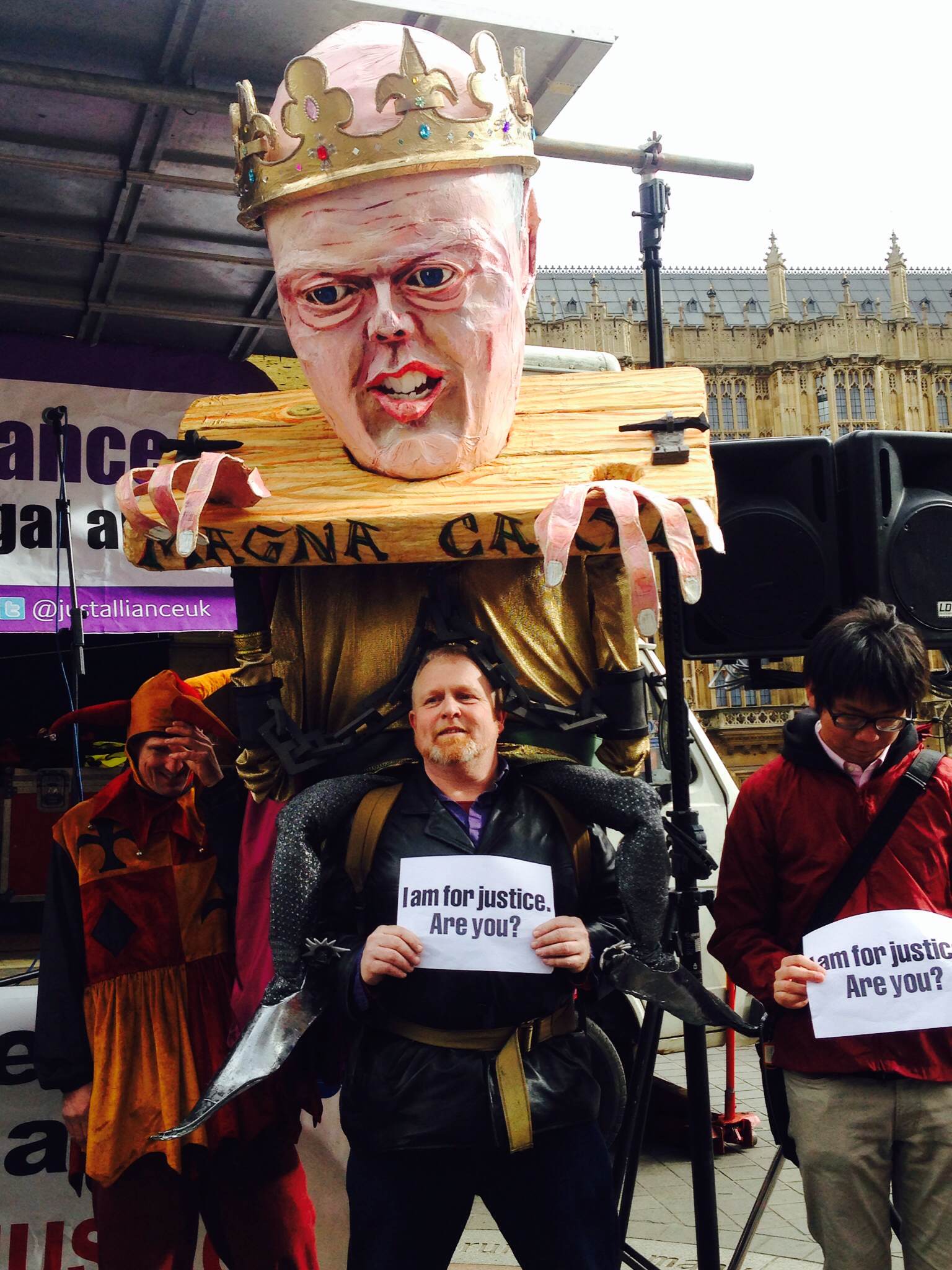[contextly_auto_sidebar id=”bCCtFZmwi7kk8sbpTQNrNUVBrZfZ5hK1″]
After the High Court last week quashed regulations restricting legal aid for lawyers bringing judicial review cases against public authorities, the government responded within three days by bringing in yet more regulations to restore the substance of the law struck down by the court.
Governments tend not to like judicial review, which allows individuals, charities and companies to challenge the lawfulness of public authority decisions in the Administrative Court.
The Lord Chancellor, Chris Grayling, expressed his view that JR had become ‘a promotional tool for countless left-wing campaigners’ seeking to hold back government reforms. Unsurprisingly, therefore, Grayling’s Ministry of Justice has sought to restrict the use of judicial review, both through Part 4 of the Criminal Justice and Courts Act 2015 and through regulations which deny payment to legal aid lawyers acting for claimants in judicial review applications where the court does not grant permission for the case to proceed to a final hearing.
‘No permission, no payment’
The Civil Legal Aid (Remuneration) (Amendment) (No 3) Regulations 2014 introduced this ‘no permission, no payment’ regime for judicial review applications funded by legal aid. The permission stage of judicial review applications is an initial hurdle, intended to filter out unmeritorious claims which are deemed by the court not to present an ‘arguable’ case that a public authority has acted unlawfully.
In addition to preventing legal aid being paid to lawyers acting for claimants where permission to proceed to a final hearing is refused by the court, where permission is neither granted nor refused (for example because the claim is settled or withdrawn before the permission decision), the regulations mean that payment of legal costs incurred in making the application would be at the discretion of the Legal Aid Agency.
The introduction of conditional payment for applications for judicial review funded by legal aid inevitably creates a degree of uncertainty for lawyers acting in such cases. Many legal aid lawyers considered that this uncertainty would have a ‘chilling effect’ on access to the court because practitioners would become reluctant to take on meritorious but risky cases for which they may not be paid.
Although the threshold for permission which requires simply that a case be ‘arguable’ to proceed to a final hearing appears low, in practice it can be very difficult to accurately determine the merits of a case before submitting an application for judicial review.
For example, a case that I worked on at Irwin Mitchell concerning a decision by a local authority to terminate the licence of a soup kitchen to use a council-owned car park was initially refused permission by a judge considering the case on the papers alone. The local authority’s decision could have resulted in the closure of the soup kitchen. After reviewing the merits of our case – which we continued to believe were strong – we applied for an oral hearing before a judge to reconsider whether permission should be granted.
The judge granted permission for the case to proceed to a final hearing and ultimately it was successful: the court held that the council’s decision was unlawful and quashed it. As a result, the soup kitchen is continuing to provide its vital service to vulnerable and homeless people. This case provides an illustration of the inherent difficulty in assessing the merits of judicial review claims and how restricting payment for cases which are not granted permission could have a chilling effect to prevent lawyers bringing applications which, while meritorious, are not straightforward.
A judicial review of JR regulations
A number of law firms (and the charity Shelter) decided to challenge the ‘no permission, no payment’ regulations for judicial review by way of JR. The case was coordinated by the Public Law Project and had the support of a number of charities and claimant law firms, including Irwin Mitchell.
The claimants argued first that the Lord Chancellor had no power to make payment for legal aid lawyers dependent on the outcome of the case, second that the regulations were inconsistent with the statutory purpose of the primary legislation, the Legal Aid, Sentencing and Punishment of Offenders Act 2012 (LASPO), and third that the regulations are likely to have a ‘chilling effect’ on access to the court.
Defending the claim, it was argued on behalf of the Lord Chancellor that LASPO entitles him to impose the risk of non-payment of costs on legal aid lawyers in order to incentivise them to focus on properly assessing the merits of cases. In relation to the purported ‘chilling effect’ of the Regulations, the Lord Chancellor contended that this allegation was premature and unsupported by evidence as the ‘no permission, no payment’ scheme had only been in place for nine months at the time.
The Administrative Court rejected the first and third grounds advanced by the claimants, but accepted that the regulations – or at least specific aspects of them – were inconsistent with the statutory purpose of LASPO and were therefore quashed (judgment here). In rejecting the third ground of challenge, the court agreed with the Lord Chancellor that the evidence of a ‘chilling effect’ was (at present) very limited and that the claimants had ‘exaggerated the difficulties of predicting whether permission will be granted or refused’.
The court’s analysis of the second, successful, ground of challenge made it clear that it was particularly concerned by three potential scenarios in which claimant lawyers may be refused payment through no fault of their own: (1) where permission is refused or not considered because the defendant withdraws its decision beforehand; (2) where the application for permission is adjourned to an oral hearing and then refused; and (3) where the application is dealt with at a ‘rolled-up hearing’, in which the court considers both permission and the substantive case together.
The government responded to the quashing of the regulations just three days later by introducing new regulations to reinstate the ‘no permission, no payment’ rule, but with additional exceptions to address the scenarios above which the court found had ‘no rational or proportionate connection’ to the stated purpose of the legislation.








